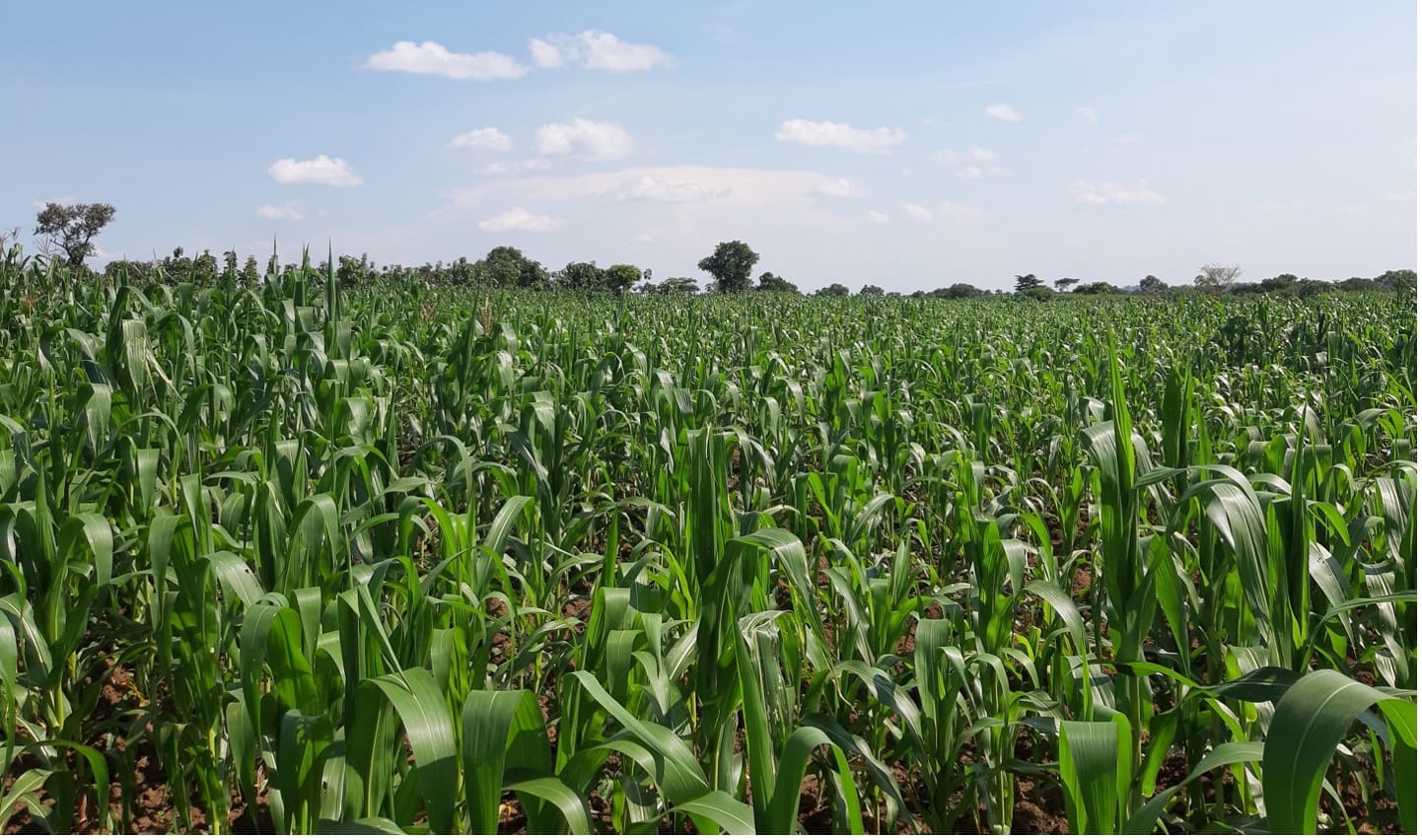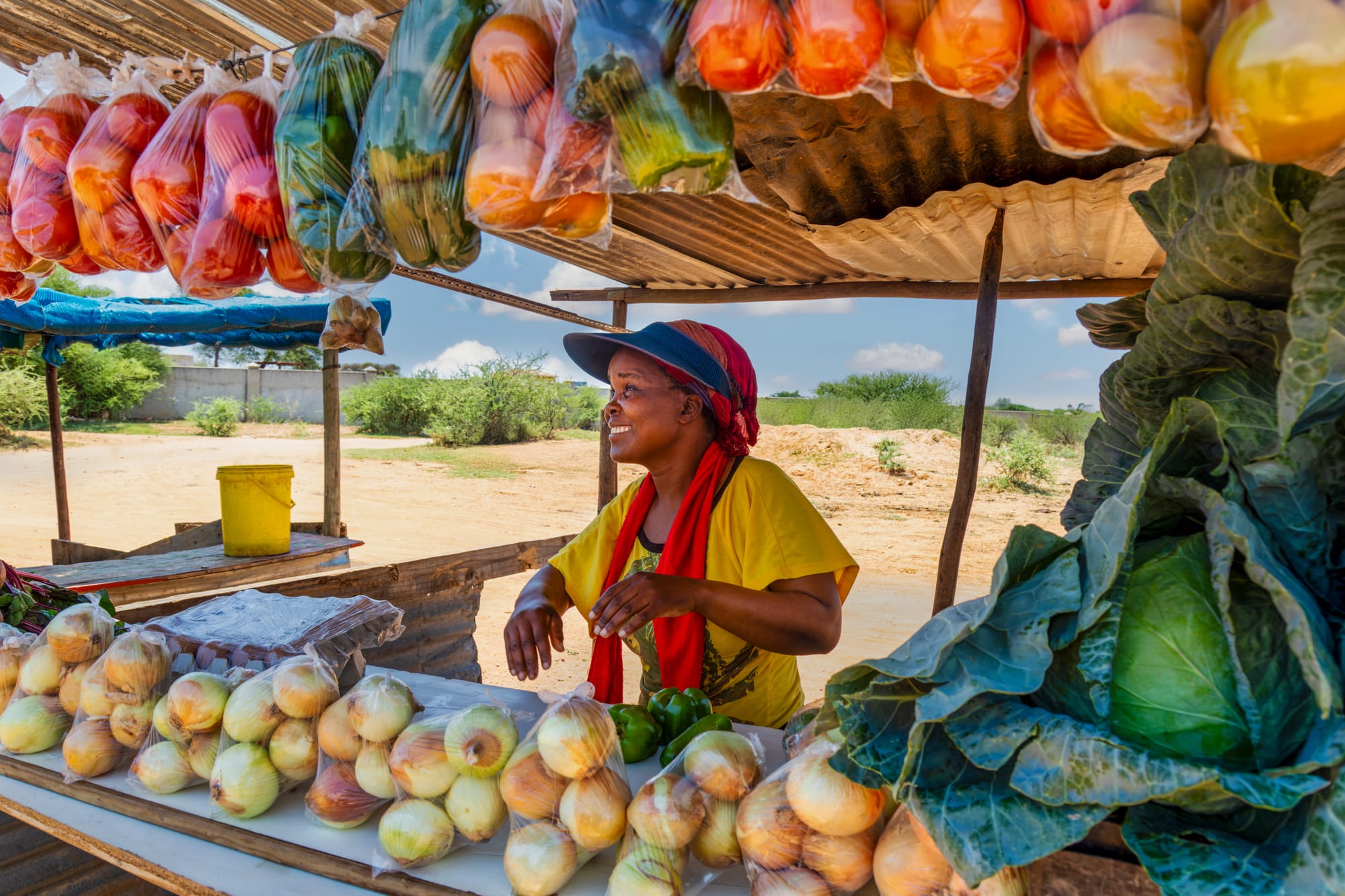Nigeria is the economic heavyweight of West Africa, but it faces challenges. Approximately two-thirds of its people live in poverty and its economy suffers from low productivity and an uneven climate for trade and investment. Until recently, oil-rich Nigeria has not been a good place to make products or grow crops because it didn’t have to be—the country simply imported what it needed. But times are changing for Africa’s most populous nation.
Thanks to a 70-percent devaluation of its currency—the naira—Nigeria stands on the doorstep of opportunity. Investing in productive Nigerian businesses is now relatively affordable. These businesses are better able to compete domestically against imports, while exporting goods from Nigeria is more profitable due to lower costs.
Hitherto underperforming, Nigeria’s economy is still the largest in Africa, with a GDP expected to exceed $530 billion in 2018, and it is positioning to fulfill higher expectations. This year, Nigeria jumped 24 places in the World Bank’s Doing Business 2018 Ease of Doing Business rankings, becoming one of the world’s top-10 improving countries (of the top 10, only India is larger in terms of population). The World Bank cited Nigeria’s reforms in the areas of starting businesses, issuing construction permits, registering property, obtaining credit, and paying taxes.
Investors are beginning to recognize Nigeria’s more competitive climate. For example, big agribusinesses such as Dangote, Top Feeds, and Olam have increased their domestic investments, as have opportunistic personal investors from Nigeria’s moneyed class. But there is more room in Nigeria for broad-based economic growth.
Across the continent, Ethiopia, Ghana, and other countries—Africa represents six of the world’s 10 fastest-growing economies—are providing examples of demand-driven investment, mutually beneficial trade, increased productivity, and job creation. Similar results can be achieved in Nigeria. Here we offer a few examples of demand-driven ingenuity and donor-facilitated programs that have opened doors for lenders and investors in Africa and unleashed the inherent energy of Africa’s businesspeople.
Developing an Investment Pipeline
Investors are cautious about entering new countries and assuming risk. Increasingly, though, international donors are supporting efforts to bring down that risk, leveraging small amounts of capital and helping to convene the right partners, develop solid business plans, structure investment deals, address policy constraints, and realistically project and deliver positive outcomes.
Headquartered in Nairobi, Kenya, the U.S. Agency for International Development (USAID) East Africa Trade and Investment Hub, for example, has created and is delivering on an investment-ready pipeline of business opportunities. Through May 2018, the Hub has helped close more than $118 million of investment transactions for 24 firms in sectors such as agribusiness, information and communication technology, financial services, logistics, textile and apparel, and health care. An additional $68.5 million in transactions is pending closure, with $124.4 million more in the pipeline.
With assistance from the Hub’s investment transaction team—mostly East Africans—these deals have been closing in six to 10 months on average, more quickly than in the past due to reduced risks and transaction costs. The team helps nurture the pipeline from beginning to end: mapping capital, targeting geographies and sectors, validating opportunities, conducting due diligence, modeling financials, raising funds, structuring transactions, ensuring neutral intermediation, and planning the post-investment phase.
The capital that the Hub is helping to raise has been transformative for East African businesses, allowing them to innovate, grow, and ultimately sell their products locally, regionally, and internationally. The Hub’s investment and trade work—including its support for the African Growth and Opportunity Act (AGOA)—created 43,000 new jobs and assisted firms to export $350 million in AGOA-eligible product to the United States over three years.
A country of more than 190 million people, Nigeria has strong markets ripe for investment—including in palm oil, rice, wheat, starch, poultry, and aquaculture—especially with imported foodstuffs now more expensive. Investment initiatives similar to that in East Africa can succeed in Nigeria, given supportive economic policies. In this regard, the July 2016 launch of the Presidential Enabling Business Environment Council—which works to remove bureaucratic constraints and make Nigeria a progressively easier place to start and grow a business—was certainly a welcome step.
Unlocking Capital
Among the enabling factors Nigeria must nurture is affordable financing for smallholder farmers and small and medium-sized businesses. Nigeria’s existing de-risking mechanisms, essential to whet the appetite and ease the way for investments—including the Central Bank of Nigeria’s Agricultural Credit Guarantee Scheme, the Nigerian Incentive-Based Risk Sharing System for Agricultural Lending, and the Anchor Borrower’s programme—are underutilized.
When investment risk is appropriately mitigated, African businesses and financial institutions will certainly step up to mobilize capital. This was demonstrated at scale by the Kenya Financial Inclusion for Rural Microenterprises project, which facilitated more than $1 billion in financing through a myriad of programs, jump-starting businesses and benefitting 2.5 million local and mostly farm-based households.
Elsewhere in Africa, national governments and donors are working creatively to leverage capital in ways that deliver inclusive growth. In Malawi, for example, food warehouse operators are snapping up €30 million of new financing to build additional storage, which will help potentially thousands of smallholder farmers reduce post-harvest losses and more effectively aggregate their crops for sale. And in Somaliland, where USAID and DAI conducted the territory’s first business-plan competition, entrepreneurs wowed judges with their entries, the winners earning more than $2 million in matching grants to co-fund growth in agriculture, livestock, fisheries, and renewable energy; this enabled the businesses to attract an additional $12 million in local, diaspora, and foreign investor capital.

Becoming a Regional Trading Partner
Nigerian imports—including rice, coconuts, palm oil, starch, and fish feed—are substantial. Now that these imports are more expensive and exports correspondingly more competitive, Nigeria is highly motivated to explore regional trade opportunities. This is easier said than done; to move food legally from country to country, traders need to navigate formal and informal trade barriers, inadequate storage and transportation options, differences in regional grain and other food standards, and corrupt participants, to name a few of the challenges. But these challenges can be overcome.
In 2017, under the auspices of the East Africa Trade and Investment Hub, food traders from six East African countries met in Addis Ababa, Ethiopia and signed $93 million in contracts. The resulting sale of 279,000 metric tons of food grains represented enough to feed 1.3 million households for six months in the recipient countries. Featured transactions included mass sales of maize from Ethiopia to Kenya, for instance, helping Ethiopian farmers make ends meet and Kenyan consumers put food on their tables. A second trade forum in Zambia produced similar results for its grain exporters and neighbors.
Much of Nigeria’s regional trade is informal because traders circumvent rules such the country’s 2015 ban on 41 different imports. The government made this restrictive move to conserve its increasingly valuable hard currency, but as a consequence 1.5 to 2 million tons of rice is now smuggled into Nigeria each year through neighboring Benin, which has no import bans.
In our view, Nigeria needs to step up its engagement with the 15-member Economic Community of West African States. Increased formal trade in West Africa could stabilize the regional supply of various commodities and bring down prices. Given its size and wealth, Nigeria is favorably positioned to lead a movement for freer trade, which would be good in the long term for Nigeria and its smaller neighbors.

Infrastructure for Business
Ethiopia has established itself as a destination for foreign investors by becoming what investors want—a good place to do business. In the past two decades, as part of a national plan, Ethiopia has paved rural roads and intercity expressways, built rail lines, and invested in developing clean energy. It has also founded more than 30 universities and hundreds of other learning institutions to support the industrial labor force needed to compete in the international economy.
Ethiopia’s new industrial parks and the incentives surrounding them are an integral part of this strategy, and they are now attracting garment and other manufacturers from around the world. Tens of thousands of permanent jobs have been created at its first such park, two more parks recently opened, and another nine are on the way, projected to employ more than 200,000 workers in the garment industry alone. The Ethiopian government anticipates that garment exports will reach $30 billion annually by 2030.
Nigeria, too, has established major industrial parks—in Aba in Abia State, Nnewi in Anambra State, and Agbara in Ogun State. However, these parks have suffered from a lack of consistent electric power. In October 2017, the Nigerian government announced that national power generation has increased to an all-time high of 7,000 megawatts. While transmitting that power widely remains a challenge, Nigeria is addressing this need and working toward the other conditions needed for industrial growth, including workforce development and education programs, and an effective transportation infrastructure. Again, the time is right for investing in these needs.
Tapping Nigeria’s Deep Talent Pool
Nigeria is rich in human resources. With 37 million people ages 15–24 and another 80 million younger still, the time has never been more urgent to invest in Nigeria’s talent and ensure that the upcoming generation has suitable employment opportunities.
USAID’s current global prize competition to solicit digital solutions for combatting fall armyworm—a scourge destroying crops across Africa—offers just one small example of the kind of talent latent in Nigeria. The competition attracted more than 220 entries from 34 countries, but two of the 20 finalists hail from Nigeria. The country is increasingly recognizing and acting on the need to tap this homegrown talent, as it is doing through initiatives such as the Student Innovation Challenge and Clean Energy Innovation Challenge.

Similar models elsewhere in Africa show real promise in terms of engaging young people in economic sectors key to inclusive growth and employment. In Ghana, for example, DAI helped Kosmos Energy design and implement the Kosmos Innovation Center (KIC) to identify and assist promising entrepreneurs in the country’s agriculture sector. In three years, more than 1,000 youth innovators from across Ghana have applied to KIC’s “AgriTech Challenge,” which provides would-be entrepreneurs with training and seed funding to establish tech-driven agribusinesses. One winner developed tractor-plowing services that can be summoned by mobile phone; another developed software to manage livestock and track the health status of individual animals.
Additionally, in 2018 more than 100 established small and medium-sized agribusinesses submitted their business plans to join KIC’s “Business Booster” program; KIC provided nine local ventures with technical assistance to develop and scale their ideas and operations.
If they are to succeed and grow, business owners and investors need motivated local workforces with the right skills. In Ethiopia, the Hawassa Industrial Park opened for business in July 2016 in collaborarion with a local operation set up to hire and train the thousands of people needed to work at the park. The Ethiopian government and park employers established this recruitment platform in conjunction with training companies and facilitated by a local firm, Enterprise Partners. The Hawassa park is projected to support 60,000 jobs.
USAID’s Hub in East Africa is connecting global businesses with the Hawassa opportunity, facilitating linkages with major U.S. brands and enabling apparel companies to participate in major trade shows. This is generating demand for finished goods, thereby contributing to the success of the firms that invested in the industrial park.
Such public-private cooperation is part of Ethiopia’s Growth and Transformation Plan, which is expected to spin off thousands of small businesses and offer the farming community access to new markets, potentially transforming the country’s economic base into a more globally connected industry. Nigeria’s development plans should address the same need.

Time to Step Up
While Nigeria has made progress in driving investment and improving competitiveness, these reforms are likely not felt broadly by the man and woman on the street, because investment in areas such as power has been low for decades, multiple taxation and other barriers to doing business have constrained success, and only a few state governments—notably Kaduna and Lagos—have wholeheartedly embraced the Ease of Doing Business initiatives.
Possibilities abound for Nigeria to step up its economic performance by improving its business fundamentals. That means opening doors for the private sector in ways that benefit the entire country—promoting trade that is accountable but not overregulated, policies that promote monetary stability and enable investors to easily enter and exit Nigerian markets, finance regimes that facilitate responsible and inclusive lending, and long-range economic development plans with aggressive stewards, including plans for infrastructure development.
Starting now, Nigeria enjoys improved competitiveness due to its devalued currency and opportune circumstances. As the economic heavyweight of West Africa, it should—and could—be a champion of economic growth, investment, and trade.





